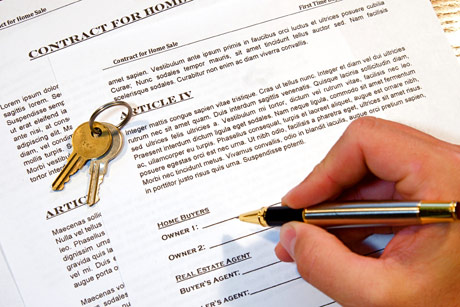‘Best and Final’ Offer
Provided by: Joseph Cooper, P.A. Team Cooper Homes
KW Classic III
352-874-5764 or 352-874-6449
So your agent has put in an offer on the house you really want to purchase and you’re waiting to hear back. Ideally, you would prefer that the listing agent directly engages your agent in a 1:1 conversation to begin negotiations. However, this isn’t always the case. When competition for a specific house is high, the listing agent may not counter your offer. Rather, the listing agent may stay silent for a few days and then inform your agent that they’ve received numerous offers and they would like for you to submit your “best and final” offer.
Being asked to submit a best and final offer can be tricky because on the one hand you might really want the house, but on the other hand you don’t necessarily want to overpay. Finding the balance can be challenging, and if you’ve been on the losing end of a bidding war several times, this may completely change your strategy going forward.
Having worked with numerous buyers over the past few months that have been put in the position to submit their best and final, let’s take a look at some tips to get you through the process.

1. Never Bid More Than What You’re Comfortable Paying
This rule is essential: You should only buy something if it’s within your means. When you’re asked to submit your best and final, think carefully about your budget. If you can’t afford the house, or if it extends you financially more than you’re comfortable with, don’t get carried away with the adjusted offer you provide. Keep in mind that closing costs are something you’ll also need to be prepared to pay.
2. Don’t Grossly Overpay
If you’re in a bidding war, the desire to win may cause you to want to place a bid that could be significantly above what the property is worth. It’s natural for prices to gravitate upward, particularly with positive market momentum, scarcity of Florida real estate and high demand. However, I would recommend working with your agent to ensure that the best and final offer you place is within reason.
3. Sales Comps Are Your Best Friend
Understanding what prior properties sold for in a respective neighborhood will be essential to getting a read on what property prices may be getting bid up to. Keep comps in mind. Your agent will help provide you with an overview . Evaluating comps will also keep you from grossly overpaying. There is a premium to be paid to ensure you get the property. However, it needs to be a reasonable premium.
4. Don’t Assume ‘Above Ask’ Means Overpriced
When an agent lists a property, they may pursue numerous strategies. Perhaps they’re looking to push the market, whereby they price it at a record-high. Maybe they start out and have it priced to sell. Sometimes, agents will underprice the property to ensure that it ends with a bidding war that will significantly drive up the price. Just because you might be paying significantly above the initial ask doesn’t mean you’re overpaying. This may have very well been part of the listing broker’s strategy. This is where analyzing comps becomes incredibly helpful again.
5. The Highest Offer Doesn’t Always Win
You may submit the highest offer, but you’re competing with buyers who may have stronger financial profiles than you do. Whether it’s their overall assets, earnings, amount of down payment or co-purchasing power of a parent, you’re always competing with factors that may not be immediately obvious. For instance, if someone bids $5,000 less than you on a property but is putting down 35 percent and you’re only putting down 20 percent, the seller might prefer to go with the lower offer. These are things you can’t control.
Key Takeaways
Getting outbid can be a defeating moment. You really wanted that house and you ended up with nothing. Keep pushing forward and remain headstrong. Your agent will be there for you to guide you through the process. As you adjust your strategy going forward, you’ll soon end up as the winner of a bidding war and will be able to move into a place you’re going to call home for a long time.